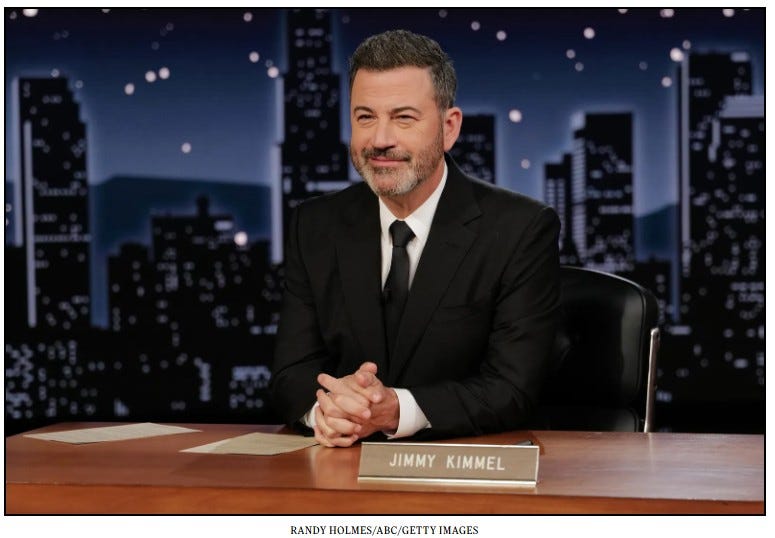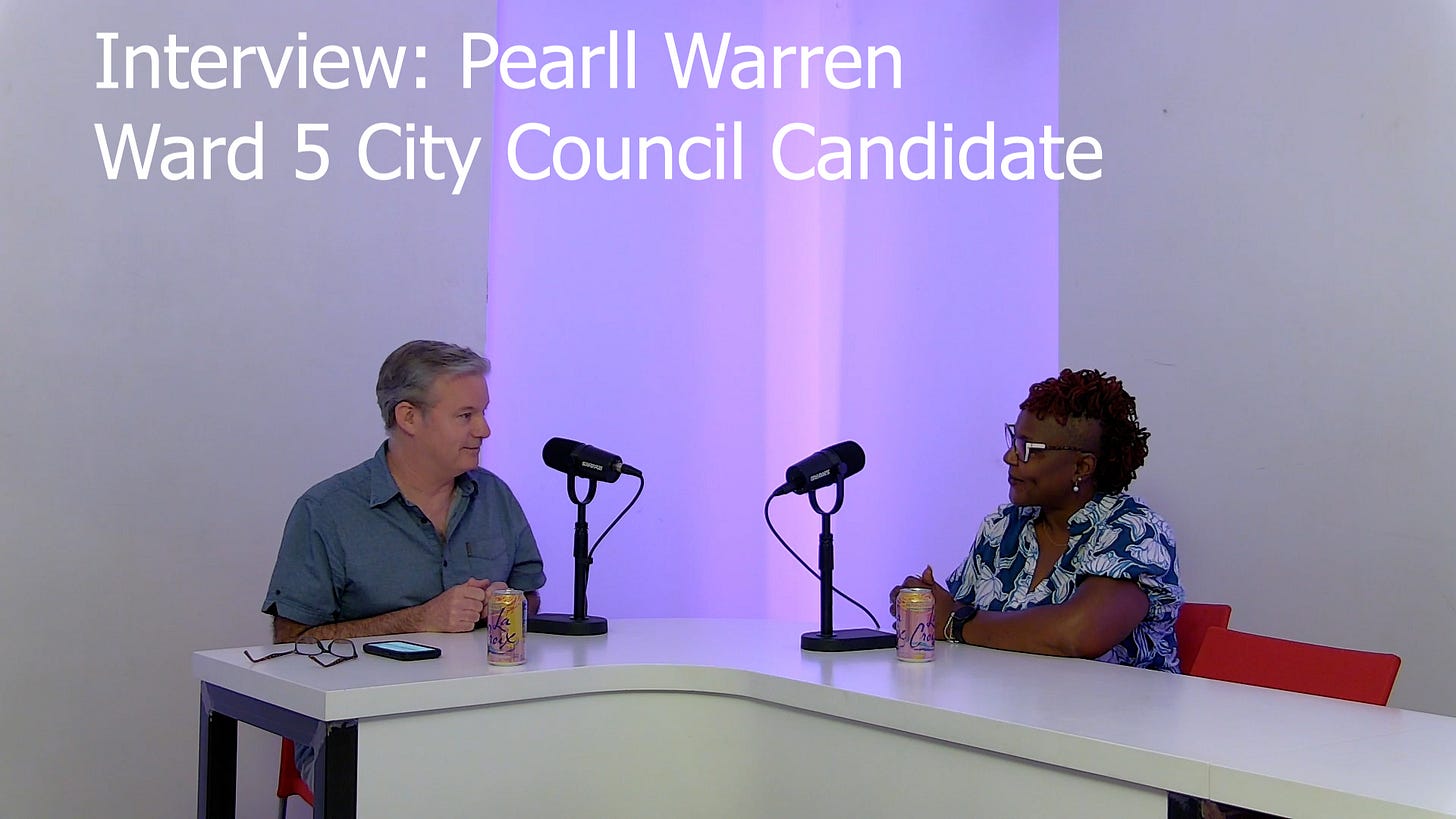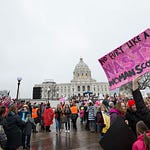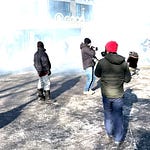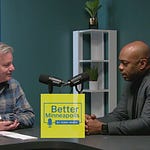Who is the Next Target of the Thought Police?
“Freedom is the freedom to say that two plus two make four. If that is granted, all else follows.” — George Orwell, 1984
Orwell warned that freedom begins with the right to state the obvious. Deny that right, and truth itself collapses. The cancellation of the Jimmy Kimmel show is not just a celebrity headline—it is a signal of how easily commentary can be policed. When public voices are muted, even briefly, it should force us to ask: who is drawing the lines, and on what authority? The reach extends far beyond late-night television.
It leaves smaller voices wondering which of their own remarks might be judged unacceptable. If a nationally known comedian can be shut down, what about an ordinary columnist, podcaster, or news reporter?
This pressure is not theoretical. We see it in the reluctance of legitimate news organizations to speak out and cover stories that could draw fire from authorities. The chilling effect is real: less reporting, narrower debate, fewer perspectives.
For individuals, the consequence is self-censorship. People scrub their timelines, delete past commentary, and measure every word against the risk of losing employment or reputation. What gets lost is not just a job but the diversity of perspectives that make civic life healthier.
If the goal of a democratic society is open debate, the growing reach of the “thought police”—whether political, corporate, or cultural—undermines that purpose. When fear replaces candor, we all end up with less information, less trust, and a thinner public conversation.
We will not hold back or self-censor our reporting. That independence is only possible with the support of readers like you. If you value Better Minneapolis, now is the time to become a paid subscriber. Staying free from corporate interests and the whims of billionaires is one way to keep the democratic experiment alive—an experiment proving more fragile than most of us ever imagined.
For much of our lives, free speech felt like a given. It no longer is.
If you find value in the interviews and articles we publish, please consider subscribing today. Your support sustains this work and will help us expand our coverage in the future.
Summary of Warren Interview
Pearl Warren, a longtime North Minneapolis resident and candidate for Ward 5, frames her run around lived experience and front-line service. A financial coaching manager at Twin Cities Habitat for Humanity and former youth outreach coordinator in Brooklyn Park and with the Minneapolis Youth Coordinating Board, she says she’s spent “20-plus years” watching the North Side change—and too often decline. A collapsed sewer line at her home and a frustrating maze of private contractors, rather than city crews, pushed her from advocacy to candidacy.
Warren’s top priorities are “safe, suitable, and sustainable” housing; public safety; and economic development. She criticizes substandard rental conditions and inconsistent inspections, noting she’s helped tenants file HUD complaints. She wants clearer expectations for property owners, better coordination with city and health inspectors, and more local ownership, warning that out-of-state investors buy “fleets” of homes, do minimal rehab, and outsource maintenance with little accountability.
On safety, Warren ties crime to scarcity and disconnection. She says Ward 5 residents need nearby jobs, basic amenities, and visible upkeep—clean lots, good lighting, and maintained streets—to foster pride and reduce offenses. She supports a stronger police presence and praises current relationship-building by officers, including youth engagement through the Police Activities League. She distinguishes “intervention” from “interruption,” arguing that proactive outreach that links people to services works better than reacting after tempers flare. She also calls for tougher gun-purchase safeguards and more attention to mental health and co-occurring addiction.
Economic development, in her view, is inseparable from safety. Ward 5 lacks sit-down restaurants, coffee shops, and everyday services; dollars leave the neighborhood. She backs constituent-driven business recruitment and long-term commitment from firms that will “live, work, and play” with the community. She applauds new grocery options like Colonial Market and the North Commons Park restoration, but is skeptical of the Blue Line route and displacement plans. She faults the current council member’s extended absence for leaving residents without consistent advocacy and promises timely responses to calls and emails.
In closing, Warren presents herself as a pragmatic connector: a housing professional with HUD certification, a former educator, and a mother and grandmother rooted in the North Side. She invites residents to volunteer, donate, and get informed via her campaign site and email, and she notes ongoing voter-registration and early-voting outreach. Her pitch is straightforward: restore basic services and standards, rebuild neighborhood commerce, and pair visible policing with proactive intervention so Ward 5 families can feel safe—and choose to stay.
You can find out more about her campaign on her website:


